Daniel Gaudet
Montreal, Canada
Dr. Gaudet is affiliated to the Department of Medicine, Université de Montréal (UdeM). He is the scientific director of the UdeM Community Genetic Medicine Center and its Clinical Lipidology and Rare Lipid Disorders Unit. He is currently president and scientific director of ECOGENE-21, a non-for profit organization devoted to access to innovation in precision medicine. His main clinical and academic activities aim at investigating rare dyslipidemias and translating new knowledge issued from extreme phenotypes to more common forms of diseases. Over the years, he has coordinated more than 200 studies involving the development of screening tools, technologies or therapies for severe dyslipidemias or related disorders, in collaboration with biotechs, pharmas, or academic partners. He authored more than 300 scientific publications in peer-reviewed journals, including several tens in very highly rated Journals (NEJM, Lancet, Nature Medicine, Nature Genetics) as well as >500 scientific communications or book chapters.
Tuesday 24 May
Emerging therapies for dyslipidemia
- Maurizio Averna
-
Lale Tokgözoğlu
Lale Tokgözoğlu
Ankara, TurkeyS. Lale Tokgözoğlu, MD, FACC, FESC is Professor of Cardiology at Hacettepe University, Ankara, Turkey. She is currently the immediate Past-President of the European Atherosclerosis Society and Deputy Editor of the European Heart Journal. She chaired the ‘Atherosclerosis and Vascular Biology Working Group of the European Society of Cardiology’ between 2008 and 2010. Prof. Tokgözoğlu has served on the Board of the Turkish Society of Cardiology and was elected to be the first female President of the Society in its history, between 2014-2016. During that time, she worked with the Ministry of Health to develop ‘Heart Health policies’ and strategies. She also chaired the Dyslipidaemia Working Group of the Turkish Society of Cardiology. She has contributed to several Guidelines and Consensus Papers on dyslipidaemia and Preventive Cardiology both in Europe and nationally. She was a member of the Steering Committee of the EUROASPIRE III-V studies which were the landmark studies defining preventive measures in Europe. She has also served on the Board of the Prevention Association as well as different committees of the European Society of Cardiology including the Fellowship and Training Committee, the Education Committee and currently the Research and Grants Committee. She is a member of the Science Academy and a founding member of the Atherosclerosis Research and Education Society in Turkey. She is also a founding member of the Department of Noncommunicable diseases in Hacettepe University. She serves on the Scientific and Research Council of Turkey Working Group on women researchers.
Awards:
Metrodora Award Global Leader in Science and Health 2020
Istanbul Medical Association Science Award in 2019
Paul Dudley White Science team award AHA 2017
Prof. Dr. Şeref Zileli Resident of the Year” Award in 1987
Young Investigator Award of the Turkish Society of Cardiology in 1994
Low-density lipoprotein cholesterol (LDL-C) is undoubtedly the priority target for lipid lowering therapy to prevent atherosclerotic cardiovascular disease (ASCVD). However, despite maximally tolerated LDL-C lowering, including PCSK9-directed therapies, residual cardiovascular risk persists. Advances in human genetics enabling the identification of rare genetic variants with strong effects on ASCVD risk not only accelerated the development of therapies for severe dyslipidaemia, but also led to identification of novel pathways involved in the metabolism of other atherogenic lipoproteins, most notably triglyceride rich lipoproteins. These insights were critical to the application of a Mendelian randomization design to establish elevated plasma levels of these lipoproteins, as well as lipoprotein(a) [Lp(a)], as independent causal risk factors for ASCVD and thus potential contributors to residual risk. Understanding the underlying genetic and cell machinery has also provided impetus in treating rare dyslipidaemias.
The development of novel antisense therapies, including oligonucleotides and short interfering RNA-based strategies, addresses several unmet medical needs in lipidology. Among these treatments, those targeting apolipoprotein C-III or angiopoietin-like protein 3 have demonstrated substantial lowering of plasma triglycerides in the setting of moderate to severe hypertriglyceridaemia.
Despite the potential efficacy of these new therapies in ASCVD prevention, cost is likely to be prove a major obstacle to their clinical use. Affordability and access are therefore the key challenges facing the next generation of lipid-lowering agents in the era of precision medicine.
Key references
Ginsberg HN, Packard CJ, Chapman MJ, Borén J, Aguilar-Salinas CA, Averna M, Ference BA, Gaudet D, Hegele RA, Kersten S, Lewis GF, Lichtenstein AH, Moulin P, Nordestgaard BG, Remaley AT, Staels B, Stroes ESG, Taskinen MR, Tokgözoğlu LS, Tybjaerg-Hansen A, Stock JK, Catapano AL. Triglyceride-rich lipoproteins and their remnants: metabolic insights, role in atherosclerotic cardiovascular disease, and emerging therapeutic strategies-a consensus statement from the European Atherosclerosis Society. Eur Heart J 2021; doi: 10.1093/eurheartj/ehab551.
Ahmad Z, Pordy R, Rader DJ, Gaudet D, Ali S, Gonzaga-Jauregui C, Ponda MP, Shumel B, Banerjee P, Dunbar RL. Inhibition of Angiopoietin-Like Protein 3 with evinacumab in subjects with high and severe hypertriglyceridemia. J Am Coll Cardiol 2021;78:193-195.
Gouni-Berthold I, Alexander VJ, Yang Q, Hurh E, Steinhagen-Thiessen E, Moriarty PM, Hughes SG, Gaudet D, Hegele RA, O’Dea LSL, Stroes ESG, Tsimikas S, Witztum JL; COMPASS study group. Efficacy and safety of volanesorsen in patients with multifactorial chylomicronaemia (COMPASS): a multicentre, double-blind, randomised, placebo-controlled, phase 3 trial. Lancet Diabetes Endocrinol 2021;9:264-275.

